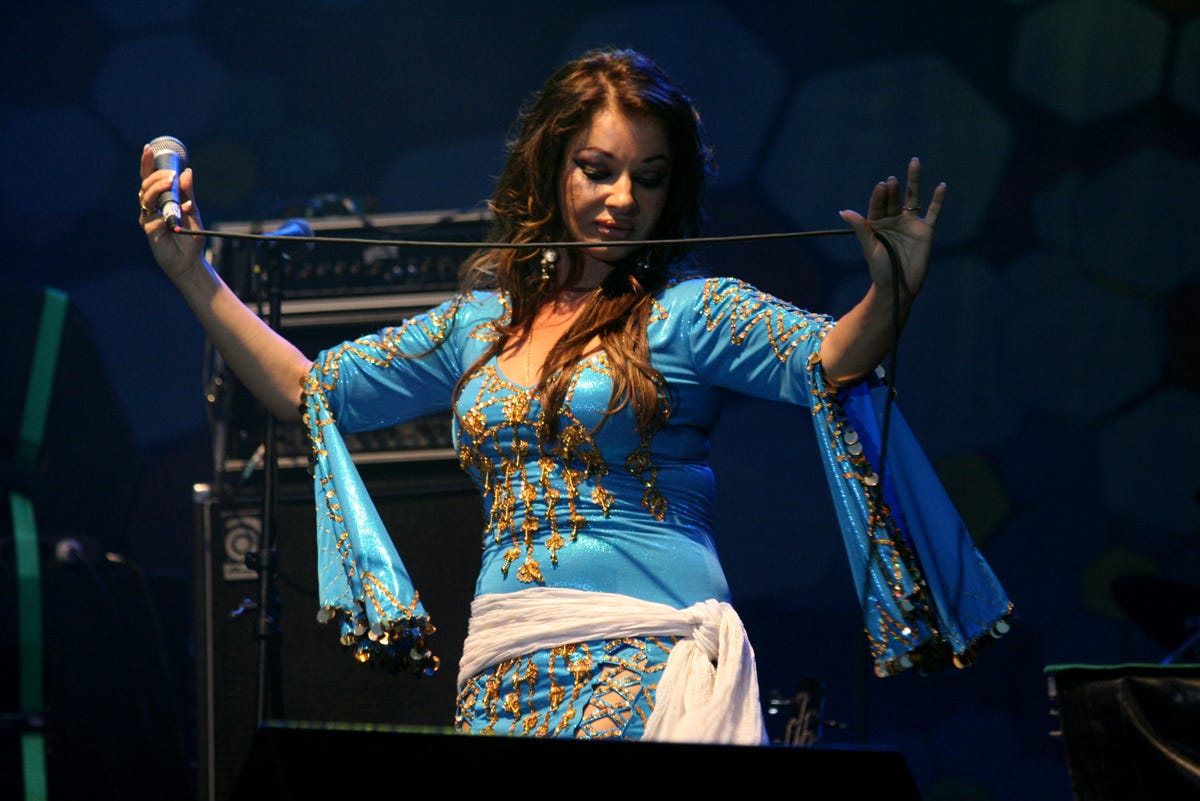Welcome to Vintage Cafe—a thoughtfully curated space for lovers of music, film, books, art, travel, and coffee. Each edition offers in-depth reviews, insightful explorations, and hidden gems you won’t find anywhere else. If you enjoy this content and want to support my work and independent writing, the best way is to take a paid subscription. Your support unlocks exclusive content and keeps this space thriving.
Back in 2004, amidst the buzz of a press conference in Belgrade, a quiet but memorable exchange took place with one of the most distinctive voices in contemporary music—Natacha Atlas. Known for her seamless fusion of Arabic and Western musical styles, Atlas was in town promoting The Best of Natacha Atlas, a career-spanning compilation that offered a snapshot of her eclectic, genre-defying journey. The interview that followed that day wasn't scheduled. There were two press conferences, one featuring jazz legend McCoy Tyner and another for the Summertime Festival's Atlas, and I attended both. Since no one else was asking questions, I conducted a Q&A with both of them. This interview somehow slipped through the cracks and remained unpublished until now.
Uncovering it again, years later, feels almost serendipitous. Re-reading her responses, one is reminded of just how ahead of her time she was—not just in sound, but in how she spoke about identity, cultural fusion, and the challenges of the music industry. There’s a grounded wisdom to her words, a refusal to be boxed in, and a passion for exploring music as both an art form and a bridge between worlds.
Born in Brussels in 1964, Natacha Atlas was raised within a rich web of cultural influences—her heritage a mix of Moroccan, Egyptian, Palestinian, and British roots. From the beginning, her music reflected this mosaic. She first came to wider attention in the 1990s as the magnetic voice of the global electronic collective Transglobal Underground before launching a solo career that would span continents and challenge genre conventions. Her debut album Diaspora introduced listeners to a world where electronic beats could co-exist with Arabic maqam scales, where traditions were not preserved in amber, but allowed to evolve.
In this unearthed interview, Atlas discusses the making of her compilation, the creative process behind revisiting older tracks, and her deep ties to both her musical and ancestral roots. She opens up about working with Transglobal Underground, redefining belly dancing on stage, and her then-recent appointment as a UN Goodwill Ambassador. What stands out most is how clearly she understood her mission—to connect, to represent, and to reimagine.
Two decades later, the sentiments she shares here feel just as relevant, perhaps even more so in our divided world. It’s a conversation that never lost its value—only its timing. We're happy to bring it to light now.
Q: You have just released a compilation of your best work, “The Best of Natasha Atlas.”
Natasha Atlas: I've just put together a compilation album called The Best of Natasha Atlas, which is not so much a “best of” for me but more like a compilation of different materials. I tried to be as varied as possible with this compilation. So, you know, for some people, not everything is on there, because you can't put what everybody else thinks is best. I mean, I think that it's just a good variation of songs from the beginning to now.




